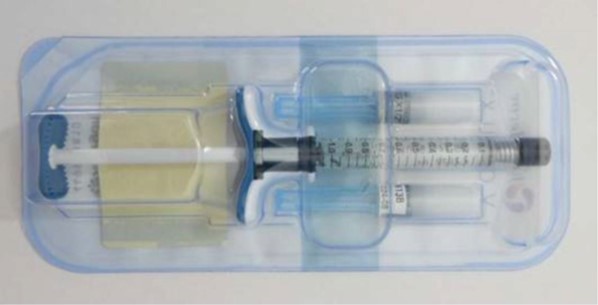JUVÉDERM VOLUX XC – P110033/S065
This is a brief overview of information related to FDA’s approval to market this product. See the links below to the Summary of Safety and Effectiveness Data (SSED) and product labeling for more complete information on this product, its indications for use, and the basis for FDA’s approval.
Product Name: JUVÉDERM VOLUX XC
PMA Applicant: Allergan
Address: Allergan Aesthetics Legal Entity
2525 Dupont Drive
Irvine, CA92612
Approval Date: July 29, 2022
Approval Letter: Approval order
What is it?
JUVÉDERM VOLUX XC is a gel implant or dermal filler that is injected in specific areas of facial tissue to add definition or reduce the appearance of lines and wrinkles. It consists of the chemical hyaluronic acid, 1,4-butanediol diglycidyl ether (BDDE), and 0.3% of the drug lidocaine hydrochloride to reduce pain on injection.
This approval expands the use of this product to include the correction of jawline definition.
How does it work?
A doctor injects JUVÉDERM VOLUX XC under the skin (subcutaneous) and/or under the soft tissue but above the bone (supraperiosteal) of the lower jaw to improve jawline definition.
When is it used?
JUVÉDERM VOLUX XC is indicated for use in adults over the age of 21 with moderate to severe loss of jawline definition.
What will it accomplish?
In a clinical study, patients needed multiple injections of JUVÉDERM VOLUX XC to achieve the best outcome. Results may last up to 12 months.
When should it not be used?
JUVÉDERM VOLUX XC should not be used for patients who have:
- Severe allergies with a history of anaphylaxis
- A history or known presence of multiple severe allergies
- A known hypersensitivity to gram positive bacterial proteins
- A history of allergy to lidocaine or other amide anesthetics
- Bleeding disorders


